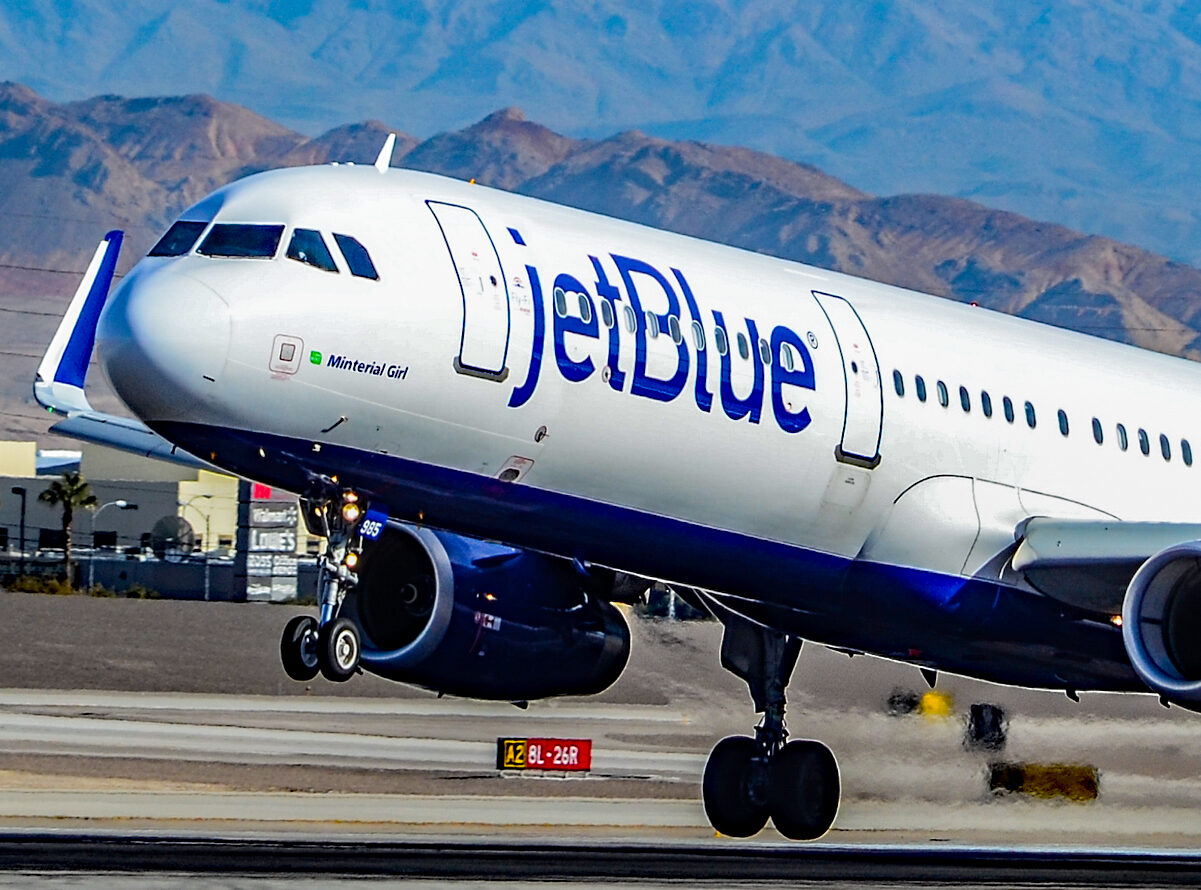JetBlue’s Push For Profits: More Leisure Routes and Cost Cuts

Photo Credit: A JetBlue plane taking off. The company is the latest major airline to take at the Dutch government over flight caps at Schiphol Airport. Flickr / Tomás Del Coro
Skift Take
JetBlue is shifting gears toward leisure travel and premium products as it figures out a future without the Spirit merger.
After the stinging losses of the Northeast Alliance and a merger with Spirit Airlines, JetBlue is now focused on other ways to achieve profitability.
Chief operating officer and incoming CEO Joanna Geraghty said the carrier is refocusing its network to emphasize more leisure and visiting friends and family routes, launching premium seating and expanding its loyalty program.
“The key strategic challenge we've always faced is how to thrive as a small player in an industry dominated by four large airlines,” Geraghty said during a call with analysts Tuesday morning.
Rising costs due to new labor contracts and issues with geared turbofan engines that have affected some of Airbus jets are some of the reasons why JetBlue hasn’t been profitable in the past year. The carrier currently has seven aircraft grounded due to the engine issues but that number could rise to 15 by the end of the year, according to an investor presentation.
To offset some of those costs, JetBlue’s chief financial officer Ursula Hurley said the company is offering voluntary buyouts to crewmembers and plans to defer $2.5 billion in aircraft spending to the end of the decade.
The new strategy also comes as JetBlue’s other attempts at growth — namely the Northeast Alliance and its merger with Spirit — have faltered. Outgoing CEO Robin Hayes said JetBlue filed a motion to expedite an appeal of its merger with Spirit, but that the carrier was “not in a position to discuss the Spirit transaction any further.”
Without a Spirit merger, Geraghty said JetBlue’s organic growth would be slower.
“This year is really about a recent year to get the fundamentals of the business right to ensure that as we grow and as we bring more JetBlue to more places that we're doing it in a profitable way on a sustained basis,” Geraghty said.
More Leisure Routes and Premium Seating
JetBlue’s new strategy focuses on the “leisure customer,” so the carrier is reallocating capacity to popular leisure markets like Florida, the Caribbean and Mexico. Skift reported earlier that JetBlue had ended service in Baltimore and axed multiple routes out of New York as a result of this shift.
The carrier also added daily service from New York to Paris and Amsterdam and is launching seasonal routes to Dublin and Edinburgh in the spring as part of this push into leisure travel.
And to woo these leisure travelers, JetBlue plans to expand its loyalty program and premium product offerings. Geraghty said the carrier planned to “launch several new loyalty products in the coming years.”
Riding off the success of its popular Mint business class seating, Geraghty also teased the possibility of JetBlue launching a premium cabin to “close the gaps in that product offering.”
JetBlue’s premium cabins could mimic those of Alaska Airlines, which are roughly similar to economy seating, but include extra legroom and leather seating.
By the Numbers
JetBlue reported a fourth-quarter loss of $104 million and operating revenue of $2.4 billion. In 2023, JetBlue netted a $310 million loss and an operating revenue of approximately $9 billion. For 2024, the carrier expects to achieve flat year-over-year revenue growth.
It remains to be seen if the new strategy can help the struggling JetBlue turn a profit.
“Let me be clear. It is not, however, business as usual,” Geraghty said. “I commit to you that with our renewed focus, we are bringing more data-driven rigor, intensity and creativity than ever before.”


